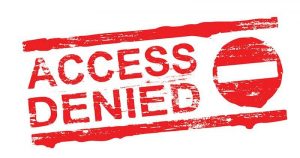NJ Appellate Court: Deed Not Needed For Substitute Access

The plaintiff in Amba operated a motel in Bellmawr Township with direct vehicular access to the Black Horse Pike (Route 168) at its intersection with a local street. As part of the realignment of the intersection, plaintiff’s access permit was revoked. DOT proposed alternative access by means of an easement creating a shared driveway on abutting property (also operated as a motel). In 2008 and compliance with the requirements of the State Highway Access Management Act, N.J.S.A. 27:7-89 to -98, and its implementing regulations, the State Highway Access Management Code (the Code), N.J.A.C. 16:47-1.1 to -9.1, DOT provided notice and opportunity to be heard concerning the proposed alternative access. Plaintiff did not object to the modification or the creation of the easement providing alternative access. In 2011, DOT condemned an easement over the abutting property consisting of the permanent, nonexclusive right of ingress and egress for the owners, successors and assigns, as well as business invitees and guests of plaintiff’s property.
Between the commencement of construction in September 2012 and November 2012, physical access to plaintiff’s property was provided first through its existing driveway and, thereafter, through the driveway within the DOT’s easement on the abutting property. Three years later on November 16, 2015, the DOT recorded a deed conveying to plaintiff title to the easement across the abutting property.
Plaintiff’s complaint alleged an inverse condemnation — that between September 12, 2012, and the recording of the easement in favor of plaintiff in 2015, DOT denied plaintiff its property right to reasonable alternative access without just compensation. In sum, plaintiff claimed a temporary taking for the period between the condemnation of its property and DOT’s subsequent delivery of a deed to plaintiff reflective of the easement over the abutting property. The DOT contended access was provided in accordance with the 2008 access plan and that access was both “completed and available” as required by the Act (see N.J.S.A. 27:7-94(d)) from the time of its condemnation of the easement over the abutting property, and that, at all times, plaintiff’s property had uninterrupted access to Route 168 through the shared driveway.
Plaintiff did not dispute that its physical access was unaffected at all times. Instead, it asserted reasonable alternative access was not “completed and available” within the meaning of the Act (see N.J.S.A. 27:7-94(d)), because it did not have a legally enforceable right to access across the abutting property until the DOT conveyed and recorded the November 16, 2015 deed of easement.
The trial court determined on summary judgment that N.J.S.A. 27:7-94(d) did not require delivery of the deed of easement but required only that plaintiff’s property have physical access to Route 168 and moreover, nothing in the record indicated that any customers or use of plaintiff’s property were affected. The Appellate Division rejected plaintiff’s appeal.
Under the State Highway Access Management Act, “alternative access shall be assumed to exist if the property owner enjoys reasonable access to the general system of streets and highways in the State.” N.J.S.A. 27:7-94(c). For commercial property, reasonable access also requires “access onto any parallel or perpendicular street, highway, easement, service road or common driveway, which . . . support[s] commercial traffic to the business or use” and provides “a convenient, direct, and well-marked means of both reaching the business or use and returning to the highway.” N.J.S.A. 27:7-94(c)(1). The Code identically defines the requirements for alternative access following the revocation of existing access from a driveway. N.J.A.C. 16:47-11.4(c).
Based on the undisputed facts, the Appellate Division found that reasonable access was “completed and available for use” within the plain meaning of N.J.S.A. 27:7-94(d) when the easement in plaintiff’s favor was condemned over the abutting property. Moreover, the Court held that although the Act and Code make express provision for the use of an easement to provide the required reasonable access, they do not require the transfer of title to the easement to the property owner for the provision of reasonable access. The Court made clear that it did not suggest the DOT is prohibited from transferring title to an easement to a property owner that allows the owner’s use of the easement for reasonable alternative access across another’s property, or that it might not be advisable for it to do so. However, under the circumstances presented, transfer of title to the easement was not required for the reasonable access defined by, and required under, the Act, and plaintiff’s claimed right to a deed to the easement was not required under the Act or the access plan it accepted without objection.






